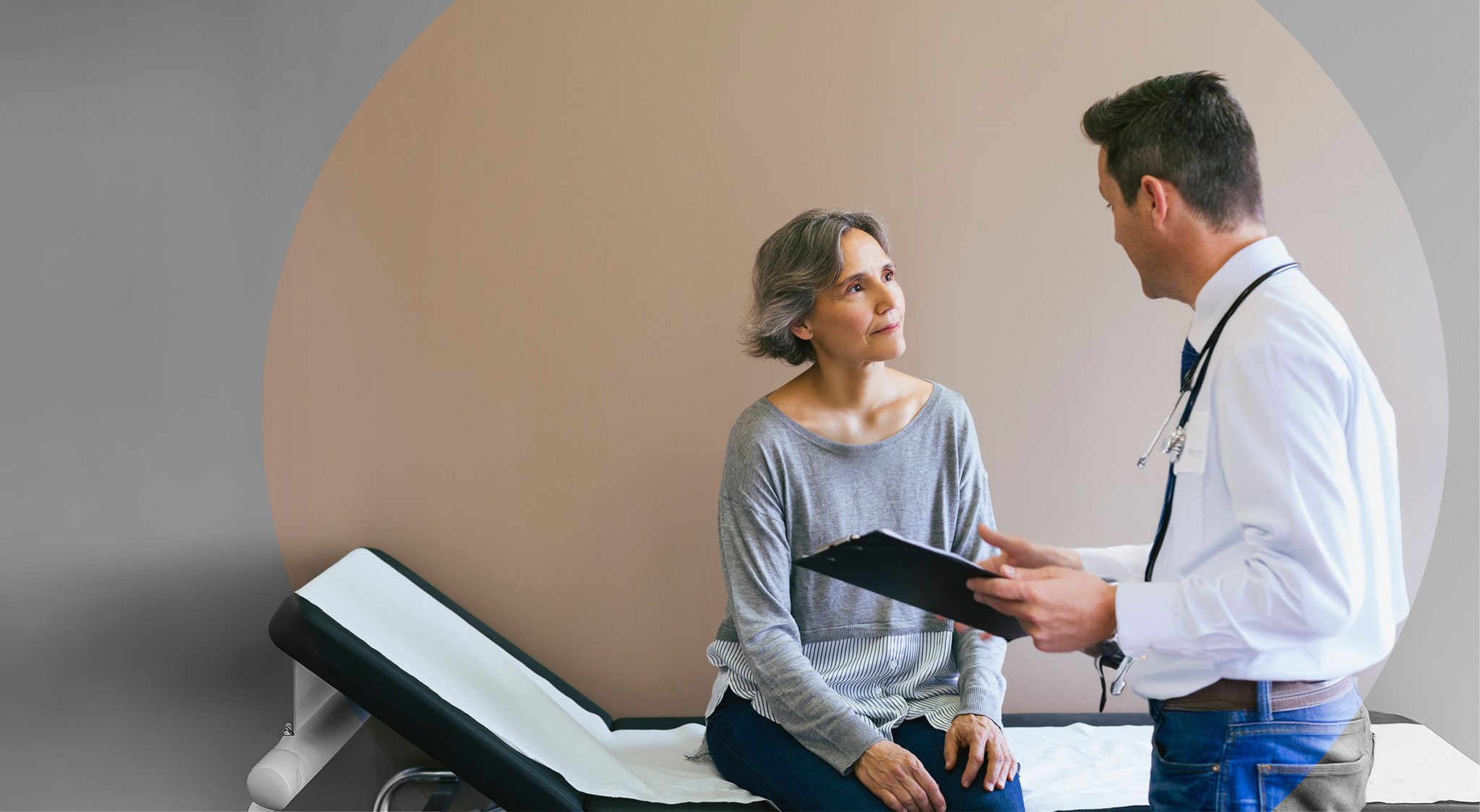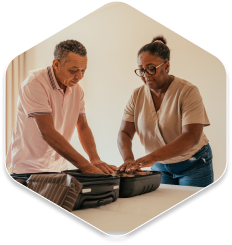
What to expect with cancer surgery
Surgery is a common treatment option, especially for those with earlier-stage cancers. Know what to expect with cancer surgery and how to prepare for conversations with your care team.
When is cancer surgery needed?
If you have been diagnosed with an earlier-stage cancer, surgery may be a treatment option for you. If it is, it’s important to know why your doctor recommends it and what the goals of the surgery are. This may help you understand benefits, risks, and how surgery fits into your overall treatment plan.

Goals of cancer surgery
The main goal of cancer surgery is to remove the cancer or as much of the cancer as possible. Depending on the size and location of the tumor, surgery may be used to remove only part of the tumor or organ to avoid damage. In some cases, other treatments are used before surgery to shrink the tumor or after surgery to lower the risk of cancer coming back.

Care team conversations
Here are some questions to ask your care team when discussing the benefits and risks of cancer surgery:
- What are the goals of my cancer surgery?
- Will my cancer be tested for biomarkers?
- What side effects should I expect after surgery?
- Will surgery remove all of my cancer?
- When should I meet with an oncologist (cancer doctor)?
- Could cancer spread or come back after surgery?
- What additional treatment options may be considered?
- What side effects or lifestyle changes after surgery should I consider?
Share all of your questions and concerns about surgery with your care team. Remember, your voice matters and no concern is too small to bring up.
Talking to an oncologist
If you’re considering cancer surgery and have not yet seen an oncologist, now is a good time to ask your doctor to refer you to one. An oncologist can work with your surgeon and other care team members to build your full treatment plan, including any additional treatment before or after surgery. Talk to your oncologist about the benefits and risks of treatment before and after surgery.
If you need help finding an oncologist, you can learn more about finding a cancer doctor here. You can also check if your insurance provider’s website offers a “find a doctor” tool. If you don’t have insurance, visit healthcare.gov to search for a local community health center.

Treatment before surgery
Treatment before surgery (neoadjuvant therapy) may be recommended to help shrink the tumor before a surgeon removes it.

Treatment after surgery
Treatment after surgery (adjuvant therapy) may be recommended to lower the risk of cancer coming back in the future.
What treatments are used before or after surgery?
Types of neoadjuvant or adjuvant treatments may include:
- Chemotherapy
- Hormone therapy
- Immunotherapy
- Radiation therapy
- Targeted therapy
It is important to work with your care team to decide what is best for your treatment goals and lifestyle.

“You have to be informed, you have to be your own advocate, and you have to make your own choices because ultimately, the choice is up to you.”
—Dog parent living with early-stage lung cancer
Market Research Participant
How can cancer come back after surgery?
If you have been diagnosed with cancer in its earlier stages, surgery to remove it is often part of the treatment plan. Everyone is different, but there is a risk that the cancer can come back or spread. This is called recurrence. Depending on the type of cancer you have, the stage, and other factors, the risk of recurrence may vary.
Even if your surgery goes well, some cancer cells may remain in the body. These cells may be too few to be seen on screening or diagnostic tests. Over time, these cells may grow.
It is important to talk to your medical oncologist, even before surgery, about your risk of cancer coming back (recurrence).
Cancer may recur after surgery. That’s why it’s important to talk to a medical oncologist about your risk of recurrence.
How can I prepare for cancer surgery?
Learning what to expect before, during, and after your cancer surgery can help you feel more prepared.
US-KEY-08152 09/24




